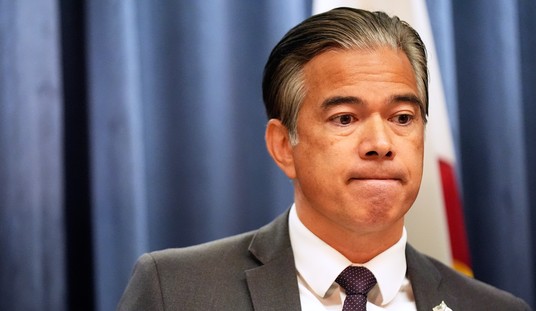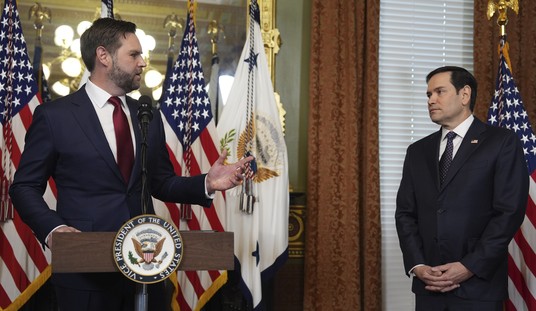The Obama administration and his re-election campaign will spend today and the rest of the week reminding everyone that Barack Obama is the President who killed Osama bin Laden. And that’s certainly true; it was a year ago this week that US special forces stormed bin Laden’s compound in Abbottabad and shot the al-Qaeda leader to death, and also captured a trove of intelligence. If the Obama campaign sticks to just those facts, they’ll stay on solid ground, although it’s still a big question as to whether anyone will cast a vote based on that singular event.
The ball-spiking got off to a bad start, though, when the Obama campaign claimed that Mitt Romney wouldn’t have the killer instinct to make that kind of a call — a weird claim in and of itself. Team Obama has already painted Romney as a heartless executive who didn’t hesitate to fire people and, er, execute poorly-performing companies as a Bain executive. What exactly would keep Romney from taking a risk with a terrorist mastermind in his crosshairs? The attack was an overreach, and an opening for critics to challenge Obama’s actual role in the mission — and when Time Magazine published the mission orders from Leon Panetta to Admiral William H. McRaven, commander of US Special Operations Command, Big Peace pounced:
The memo puts all control in the hands of Admiral McRaven – the “timing, operational decision making and control” are all up to McRaven. So the notion that Obama and his team were walking through every stage of the operation is incorrect. The hero here was McRaven, not Obama. And had the mission gone wrong, McRaven surely would have been thrown under the bus.
The memo is crystal clear on that point. It says that the decision has been made based solely on the “risk profile presented to the President.” If any other risks – no matter how minute – arose, they were “to be brought back to the President for his consideration.” This is ludicrous. It is wiggle room. It was Obama’s way of carving out space for himself in case the mission went bad. If it did, he’d say that there were additional risks of which he hadn’t been informed; he’d been kept in the dark by his military leaders.
Finally, the memo is unclear on just what the mission is. Was it to capture Bin Laden or to kill him? The White House itself was unable to decide what the mission was in the hours after the Bin Laden kill, and actually switched its language. The memo shows why: McRaven was instructed to “get” Bin Laden, whatever that meant.
President Obama made the right call to give the green light to the mission. But he did it in a way that he could shift the blame if things went wrong. Typical Obama. And typical of him to claim full credit for it, when he didn’t do anything but give a vague nod, while putting his top military officials at risk of taking the hit in case of a bad turn.
Here’s the memo that conveyed the green light:
Received phone call from Tom Donilon who stated that the President made a decision with regard to AC1 [Abbottabad Compound 1]. The decision is to proceed with the assault. The timing, operational decision making and control are in Admiral McRaven’s hands. The approval is provided on the risk profile presented to the President. Any additional risks are to be brought back to the President for his consideration. The direction is to go in and get bin Laden and if he is not there, to get out. Those instructions were conveyed to Admiral McRaven at approximately 10:45 am.
I think that the interpretation from Big Peace is perhaps a little overblown, too. The decision to assault the compound was based on the risk profile from Panetta and McRaven. A risk profile would normally cover a range of possibilities, along with the countermeasures the military planned to negate or minimize them. If that changed, then any President would want to make sure that the decision got some reconsideration, especially since the mission involved invading a nominal ally and conducting a military operation just a couple of miles from one of their premier military academies. If there were no changes, then McRaven needed to have the authority to determine timing and hold operational control of the mission. McRaven couldn’t consult Obama and his team on constantly-shifting but manageable conditions on a moment-to-moment basis if anyone expected the raid to succeed. That’s not a setup for a patsy; it’s operational reality.
Besides, if the mission had gone badly, Obama couldn’t have escaped the failure, even if this was some sort of attempt to make McRaven a fall guy. Ask Jimmy Carter how well that worked with Operation Eagle Claw in April 1980, 32 years ago, almost to the day, or for that matter, George W. Bush about Tora Bora, an incident used by Obama in the 2008 election. Biden was right that a big failure at Abbottabad would have had big negative consequences for Obama.
On the other hand, had Obama not made the call to conduct this mission and missed his chance at bin Laden, that would also have had large negative consequences for Obama, had that refusal gotten out, and arguably larger than a failed attempt would bring. I don’t want to take away from the difficult circumstances of this decision — the aftermath of the successful mission with Pakistan shows the dangerous context of that call — but in the end, very few American Presidents would have passed up the opportunity to “get” bin Laden in this precise set of circumstances, whatever “get” meant. It was the right call, but I don’t think it was as “gutsy” as the White House wants to portray it, nor do I think that these operational orders show an attempt to hide from the consequences of failure.
Obama’s order produced a successful result and America finally brought justice to Osama bin Laden. He’s entitled to claim credit for that decision in his re-election effort, but let’s not make it more — or less — than the American victory that it represented.







Join the conversation as a VIP Member